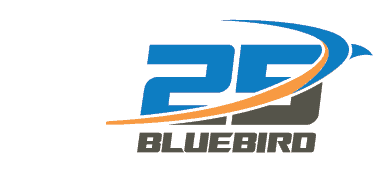“You were hacked” is by far one of the worst things to hear, particularly if it involves your bank or any personal information. Many aspects of our lives can now be managed online, from working to shopping to banking to investing, and many consumers are taking full advantage. However, many people are not aware of the best practices for safeguarding their personal data. It can take years to recover from having one’s personal information stolen. Some people even give away information online, especially on social media, which can give shady people access to their private affairs.
Read on to learn how to keep your personal information secure while you’re online.
Use Strong Passwords
Avoid using words or numbers that a hacker could easily decipher, such as your birthday, when creating a password. Select mixtures of symbols, numbers, and letters in both lowercase and uppercase, and switch them up occasionally. A password manager tool can assist you in keeping track if you’re worried about forgetting your passwords. It’s also better to create a special password rather than using the same one across numerous websites.
Careful What You Share on Social Media
Stop sharing so much personal information online, such as your location, pictures, birthdays, and vacations. It’s important not to include as much personal information on social media profiles as possible since hackers love this sort of stuff. Facebook, for example, has admitted that employees and vendors had access to these profiles.
Be Wary of Links or Attachments
Cybercriminals often construct their phishing scams to appear as authentic communications from a bank, utility company, or other organization. Spelling errors or an email address that differs from the typical sender can be clues that the email is spam. New profiles, such as on Facebook, sending you a link should be avoided, especially if it’s from someone you don’t typically talk to.
Use an Antivirus
This type of software is often referred to as “software antivirus,” but actually fending off viruses is just one small part of what it does. Your files are encrypted by ransomware, which then demands payment to decrypt them. Programs called “trojan horses” have the appearance of being legitimate but are secretly stealing your personal data. A bot herder can command your computer to launch a denial-of-service attack, send spam, or do anything else they want by turning it into a soldier in their zombie army. These and many other types of malware are something you can be protected from by an efficient antivirus.
Have More Than One Email
You ought to open and utilize multiple email accounts to maximize the security of your data while browsing the web. You should, for instance, only use one email address for sensitive information, such as banking, and you shouldn’t share it with anyone. To sign up for email lists, receive retail coupons, play online games, and other things, you should have a second email account. You should also have a third email account for communicating with friends and family.
Bluebird Network provides a variety of custom data center colocation solutions for customers’ business needs. Your data is the foundation of your business, and we know you need 24/7/365 access to it. We’ve created an advanced infrastructure to provide our customers with a 100% uptime guarantee. Get in touch with us today or request a quote for more information.

Recent Comments